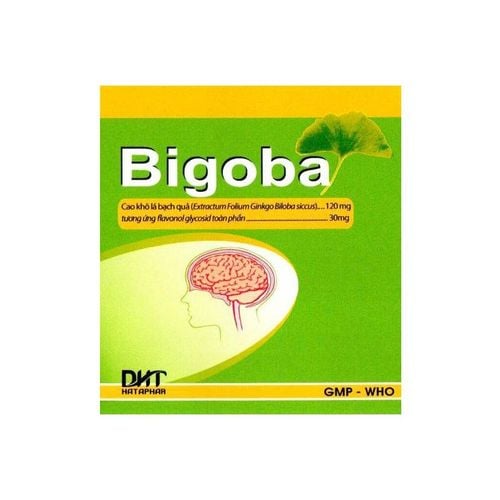This is an automatically translated article.
"Brain Fog" (Vietnamese is: Brain fog) refers to a condition in which the mind cannot remember, analyze quickly, or lack concentration. At that time, you will feel like you are no longer yourself and cannot think clearly. Brain fog is not a disease, it can have many different causes.
1. What is the definition of brain fog?
Brain fog or brain fog is not a medical condition. This is a term used to refer to a symptom of cognitive dysfunction that affects your ability to think, specifically:
Memory problems Lack of mental clarity Poor concentration Inability to attention ability Brain fog is a common condition but little known (only felt but not defined). This condition is unusual, even really complicated, as it can be caused by a range of lifestyle problems, medications, or medical conditions.
2. What are the symptoms of brain fog?
Brain health is important for mental capacity. Your feelings and thoughts are closely related. To feel well, you must be able to think clearly. But when you have brain fog, your brain, which has dense intellectual neural tissue, now feels like a jumbled mess. Some people even describe brain fog as mental fatigue. Additionally, you may also feel:
Can't focus long enough on work tasks, conversations, or even the words you're reading Confused, confused, or having trouble concentrating or expressing your thoughts Difficulty making decisions, small decisions become big problems You need more coffee to focus, more snacks to stay awake and more alcohol at night for temporary relief In more severe cases, you may experience headaches, vision problems, or even nausea. Brain fog can appear in many ways and for many different reasons. But whatever the reason, you will feel depressed about yourself, gradually affecting your relationships, and making you easily "crazy". Depending on the severity, brain fog can interfere with work or school.

Brain fog khiến người mắc phải khó tập trung vào công việc
3. The causes of brain fog
3.1. Pregnancy Many women find it harder to remember during pregnancy. Carrying a baby in your belly can change your body in many ways, including the "goldfish brain". At the same time, chemicals secreted to protect and nourish the fetus can also be the cause of memory problems.
3.2. Multiple sclerosis (MS) This disease affects the central nervous system and can change the way the brain connects to the rest of the body. About half of people with MS have problems with memory, attention, planning, or language. Memory exercises can be helpful for the patient. At the same time, therapists can also teach patients new ways to tackle the part of the job they are having trouble with.
3.3.Drugs Certain medications - both over-the-counter and prescription - can cause brain fog. If you're on medication and notice that your thoughts aren't as clear as they should be or you're suddenly unable to remember things, call your doctor. Don't forget to tell your doctor about all the medications you take.
3.4. Cancer and cancer treatment Chemotherapy is a cancer treatment that uses strong chemical drugs, which can affect brain function. The person may have trouble remembering details like names or dates, have difficulty performing many tasks, or take longer to complete tasks. Although this side effect usually goes away fairly quickly, some people experience it for a long time after treatment. Furthermore, cancer itself can cause brain fog if the tumor has affected the brain.
3.5. Menopause Women may have a harder time learning or remembering things when they reach menopause, usually around age 50. Not only brain fog, menopausal women can also experience hot flashes (irregular sweating, increased heart rate and body temperature) and other body changes. Hormonal supplements and other medications can help control this condition.
3.6. Chronic Fatigue Syndrome (CFS) When you experience chronic fatigue, your body and mind will feel sluggish for a long time. You may feel lethargic, forgetful, and unable to concentrate. There is no specific cure for chronic fatigue, but medication therapy, exercise, and psychological counseling can be helpful.
3.7.Depression The fact that you can't remember things clearly or think through problems easily can sap energy and motivation. On the other hand, depression also affects the brain, such as creating "fog". Treating your depression with medication and counseling will help you get back to a normal life.
3.8. Sleep You need sleep to help your brain function properly, but sleeping too much can also make you feel brain foggy. The goal is to get 7 to 9 hours of sleep a night. For real quality rest, avoid caffeine and alcohol after lunch, and don't bring computers and smartphones into the bedroom. Going to bed and waking up at the same time every day is also a good habit to follow.

Giấc ngủ có liên quan mật thiết với brain fog
3.9.Lupus This long-term illness causes the immune system to mistakenly attack your body. Symptoms can vary from case to case. About 50% of people with lupus have memory problems, confusion, or trouble concentrating. There is no cure for lupus, but taking medication and consulting with a therapist can help.
If left untreated, brain fog can be frustrating and affect your quality of life in the long run. When you find and address the underlying cause, you can regain your mental clarity. Sometimes, patients just need to supplement nutrition, switch drugs or improve sleep quality and follow a scientific lifestyle to reduce brain fog.
Please dial HOTLINE for more information or register for an appointment HERE. Download MyVinmec app to make appointments faster and to manage your bookings easily.
Reference source: webmd.com












